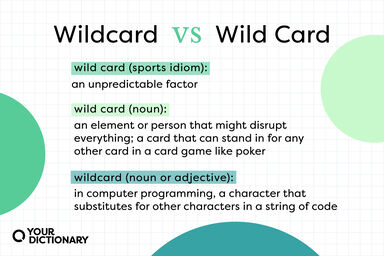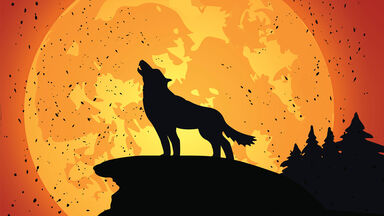Wild Definition
wīld
wildest, wilds, wilder 1
adjective
wildest, wilder 1
Living or growing in its original, natural state and not normally domesticated or cultivated.
Wild flowers, wild animals.
Webster's New World
Not lived in or cultivated; overgrown, waste, etc.
Wild land.
Webster's New World
Not inhabited or farmed.
Remote, wild country.
American Heritage
Not civilized; savage.
A wild tribe.
Webster's New World
Not easily restrained or regulated; not controlled or controllable; unruly, rough, lawless, etc.
Wild children.
Webster's New World
Synonyms:
adverb
In a wild manner; wildly; without aim or control.
To shoot wild.
Webster's New World
Inaccurately; not on target.
The javelin flew wild and struck a spectator, to the horror of all observing.
Wiktionary
Synonyms:
noun
wilds
A wilderness or wasteland.
Webster's New World
A natural or undomesticated state.
Returned the zoo animals to the wild; plants that grow abundantly in the wild.
American Heritage
A region that is mostly uninhabited or uncultivated.
The wilds of the northern steppes.
American Heritage
(chiefly in the plural) A wilderness.
Wiktionary
verb
To go about in a group threatening, robbing, or attacking others.
American Heritage
pronoun
A surname for a wild person, or for someone living in uncultivated land.
Wiktionary
idiom
run wild
- to grow, exist, or behave without control
Webster's New World
the wild
- the wilderness, nature, the out-of-doors, etc.
Webster's New World
Idioms, Phrasal Verbs Related to Wild
- run wild
- the wild
Origin of Wild
-
From Middle English, from Old English wilde, from Proto-Germanic *wilþijaz. Compare West Frisian wyld, Dutch wild, German wild, Danish vild.
From Wiktionary
Middle English wilde from Old English
From American Heritage Dictionary of the English Language, 5th Edition
Wild Is Also Mentioned In
Find Similar Words
Find similar words to wild using the buttons below.





